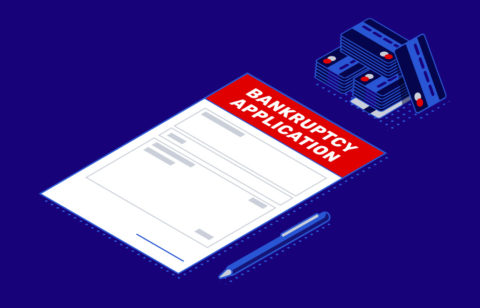If you’re having trouble making payments on your debts and feel as if you were just falling further and further behind every month, the idea of declaring bankruptcy can seem like a very good one. Bankruptcies can cost $500 or even less these days and could get you a fresh start in just six months. However, before you rush off to hire an attorney there are some things you need to do to know if it really is time to declare bankruptcy.
Consumer credit counseling
The first thing you should do is go to a consumer credit counseling agency. There is probably a good one in your city or town. By good I mean one that’s a nonprofit and that charges little or nothing for its services. If you can’t find one in your community, you can easily find a consumer credit counseling agency online. Whichever you choose you will be assigned a counselor who will go over your finances and help you determine if it really is time to file for bankruptcy.
Do a means test
Just because you’re having trouble with your debts doesn’t mean you would qualify for a bankruptcy. So before you file, you should give yourself a means test as this is what your bankruptcy judge will do. The way you do a means test is to first determine your state’s median income. If your income falls below it, you should be able to do a chapter 7 bankruptcy with no problem. However, if it’s more than the median, you must calculate if after subtracting some specific expenses, you would have adequate income left over to repay at least part of your debts. If the answer to this is yes you would have the income, you probably won’t qualify for Chapter 7 bankruptcy.
Make a list
You should also make a list of your debts and income. If you learn that your monthly debt payments are only 35% or less of your monthly income, you may not be able to persuade the judge that you should be allowed to have a chapter 7 bankruptcy.
Check out the alternatives
You should also check out the alternatives available to you besides bankruptcy. This could include a debt consolidation loan, a debt management plan or debt consolidation through debt settlement. One of these alternatives might be a better solution than filing for bankruptcy, which would leave a black mark on your credit report for seven or 10 years – depending on the credit-reporting bureau.
Talk with an attorney
Many attorneys offer a free initial consultation. If you can find one that does, you should sit down and discuss your situation with him or her. Also, many communities offer free legal aid.
Understand a Chapter 7 versus a chapter 13 bankruptcy
The most common type of bankruptcy is a chapter 7. It’s also called a liquidation bankruptcy because it’s used to liquidate most of a person’s debts. However, a Chapter 7 can only discharge unsecured debts and not all of them. For example, it will not discharge student loan debts, child support, alimony or back taxes.
In comparison, a chapter 13 bankruptcy is a reorganization bankruptcy. Its goal is to give people time to reorganize their finances and pay off their debts. People who file for this type of bankruptcy are allowed keep all of their assets. This is unlike a chapter 7 where a person’s assets could theoretically be seized and sold to pay some of his or her creditors.
The danger of filing a chapter 7 bankruptcy
If you don’t do your homework such as giving yourself a means test and file for a chapter 7 bankruptcy, there is a hidden danger. The bankruptcy judge could review your income and debts and decide to convert you to a Chapter 13 bankruptcy. This means that instead of getting rid of your debts you would be stuck with them – though you would at least avoid the possibility of losing valuable assets.







